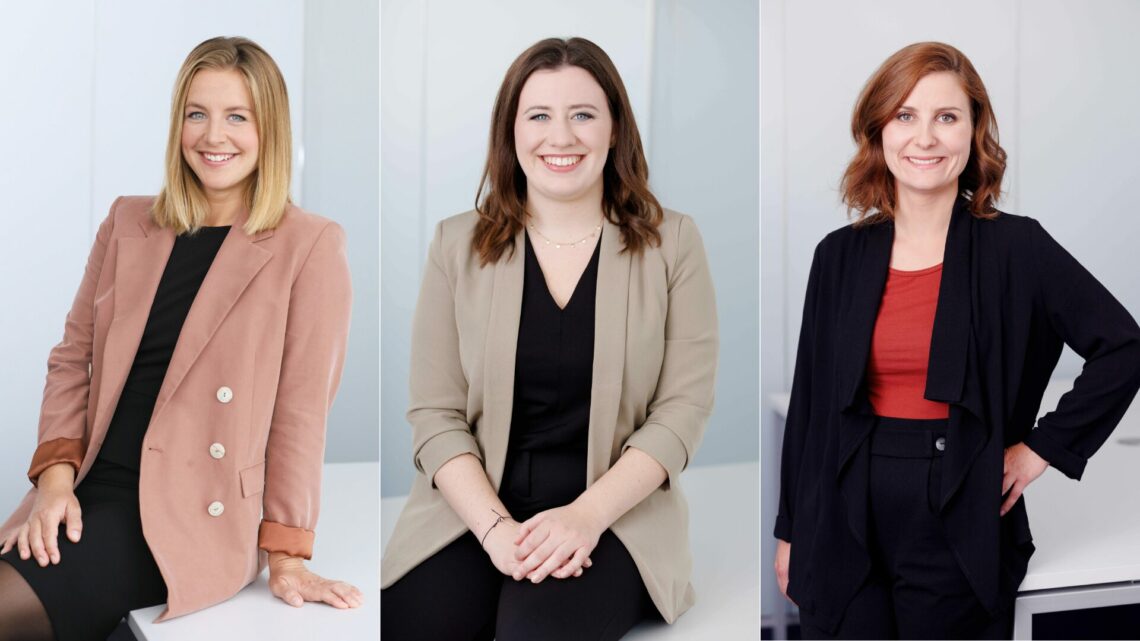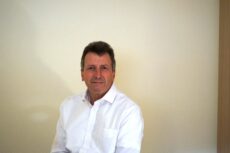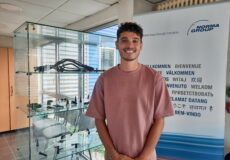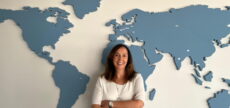This post is also available in: Deutsch
In our Diversity@NORMA series, we highlight the diversity of personalities that work at NORMA Group. The focus in 2024 is on the diverse training and educational backgrounds of our employees. Representatives from various departments and countries share their experience of working with colleagues who have taken different training or educational paths and how this is why an effective exchange of information and ideas takes place at NORMA Group.
What do Kim Schmiedel, Miriam Reith and Julia Bergmann have in common? Despite their different educational backgrounds, all three work in the Corporate Responsibility (CR) department at the NORMA Group site in Maintal, Germany. In this interview, they talk to us about how these differences shape how they work together every day and what they can learn from each other.
Can you tell us something about your educational background?
Kim: After graduating from high school, I completed my Bachelor’s degree in Business Administration – Emerging Markets. The course is a mixture of business administration and economic geography. I subsequently completed my Master’s degree in Economic Geography and Spatial Development Policy. During my studies, I was a working student in various areas, including HR and controlling. After spending two years working in auditing, where I had some exposure to corporate social responsibility, I decided to move to NORMA Group. I have now been with the company for almost two and a half years.
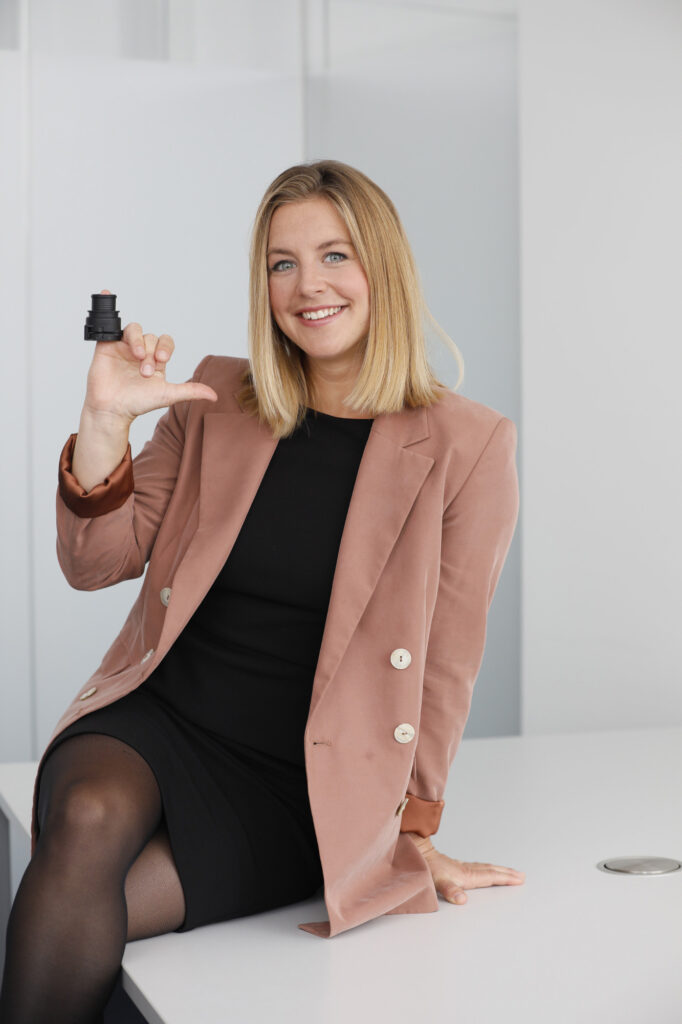
Kim Schmiedel, Senior Manager Corporate Responsibility
Miriam: I also graduated from high school and then studied politics and economics – a double Bachelor’s degree. I did my Master’s degree in Business Administration with a focus on public and non-profit management. My studies really aroused my interest in the field of CR and I started working for NORMA Group after I graduated. I have now been with the company for almost two years.
Julia: After finishing secondary school, I completed a three-year apprenticeship as an industrial clerk. After working in that profession for three years, I took a further qualification exam to become a Bachelor in Professional of Business (CCI). I followed that up with a number of different jobs and additional training. In the end, I switched to the Environment, Social and Governance (ESG) department and have now been working at NORMA Group for over six months.
Can you describe the interaction in your team? Are there any advantages to the diversity of your educational backgrounds?
Kim: There are definitely advantages! I still approach my work from the vantage point I acquired during my time in auditing, but now from the other side. With Julia, you can tell that she has a lot of practical work experience. And when Miriam started at the company, I really appreciated that she brought new ideas and a breath of fresh air from university. There are obviously differences, but we all benefit from them.
Miriam: I agree with that! We essentially have a similar mindset and we also work together very closely. But when it comes to dealing with challenges in particular, we have different approaches and look at the task at hand from different angles.
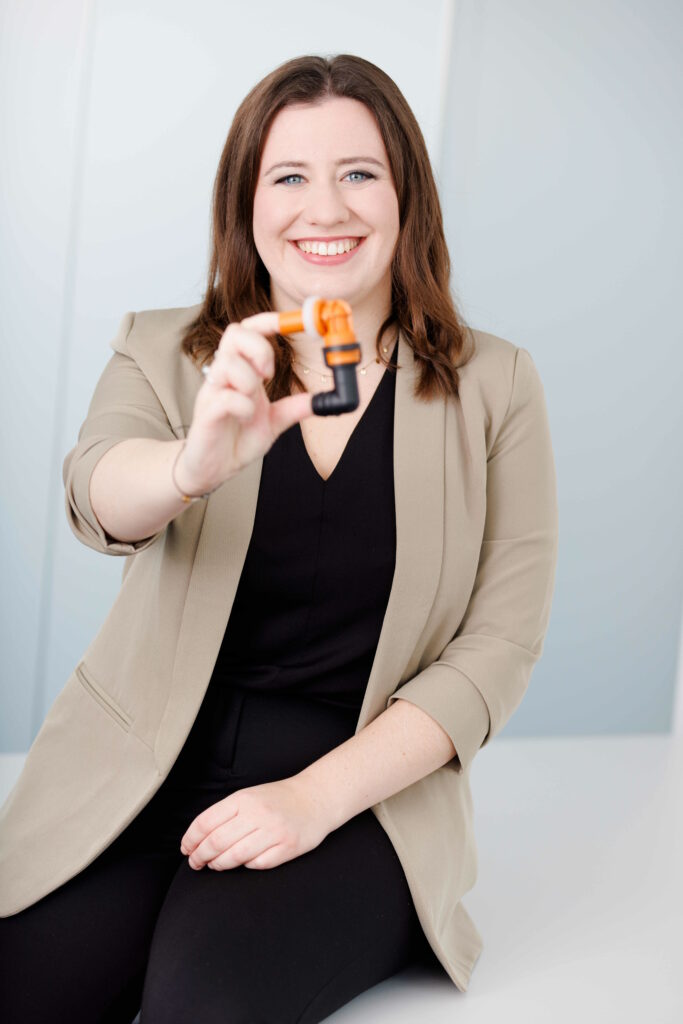
Miriam Reith, Manager Corporate Responsibility
Julia: I can only confirm that. Kim, for example, brings practical knowledge from auditing, which is a great advantage for me as I can draw on her experience and strategies. And Miriam has very good analytical skills and a good eye for the big picture. These differences help us to achieve a good result in the end. The different approaches are therefore extremely helpful in everyday working life because we develop different ideas together.
What valuable insights have you gained from your collaboration?
Kim: The fact that we can rely on each other as a team, that we have each other’s backs and complement each other. I have rarely worked so closely with a team and exchanged ideas about everything.
Miriam: Given our different backgrounds, we tend to have different approaches. It is therefore always worthwhile to have a close exchange with each other – especially when you are struggling to make progress yourself.
Julia: Exactly, we benefit from each other’s strengths.
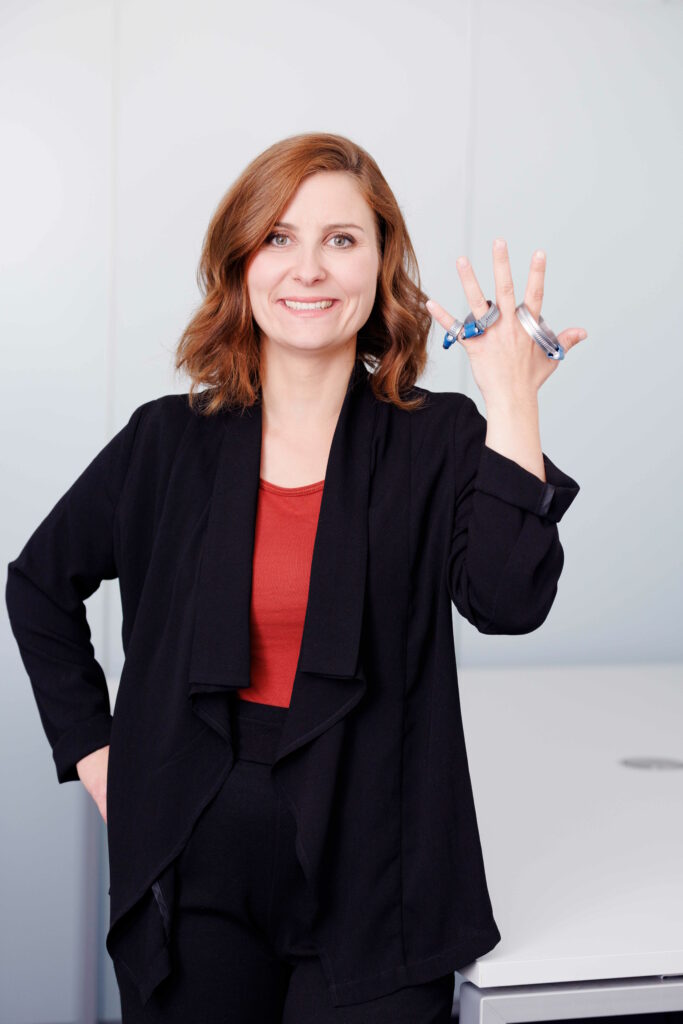
Julia Bergmann, Corporate Responsibility Manager
What role does your professional background play in your daily work?
Kim: It doesn’t really play that much of a role in my daily work. I don’t necessarily even know what academic background many colleagues from other departments have. When I meet someone, the first thing I want to know is not whether they have a Master’s degree, but whether we can work well together, whether we can establish a good working relationship and whether they have a high level of expertise.
Miriam: In your private life, you tend to stay in your own bubble and surround yourself with people who are following a trajectory that is similar to your own, for example at university or in vocational school. In everyday working life, however, your educational background plays an insignificant role. There is no better place to step out of your bubble than the workplace.
Julia: That’s right, these boundaries break down in everyday working life – that’s great to see!
How does the diversity of educational backgrounds enrich NORMA Group?
Kim: What we see in our team can also be transferred to NORMA Group. We all benefit from different educational backgrounds – both in our own department and throughout the company.
Miriam: Absolutely, all employees bring a variety of experience to the table – and that is something that provides a breath of fresh air and generates new ideas. Every company relies on people with different educational backgrounds working together, because we all have different interests and can only contribute to the company’s success if we work together.
Julia: Diversity means that you are constantly learning – if all the people in a team thought the same way, there would be no new perspectives. It is still very difficult to take a completely new path these days. In our team in particular, however, it is obvious that it doesn’t matter what background you have if you are really interested in a subject. In that case, you are often even better at it than someone who has studied something that doesn’t suit them at all. People should be given the opportunity to change careers and try out new things more often.

